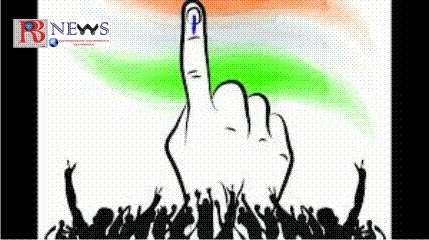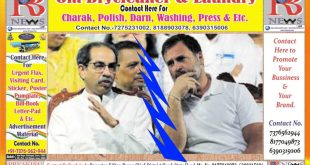One country, one election means that all the elections in the country should be held simultaneously. This is a proposal in which it has been suggested to hold Lok Sabha and Assembly elections simultaneously. Prime Minister Narendra Modi himself has advocated one country, one election many times.
If this proposal is implemented, then Lok Sabha and Assembly elections across the country will be held only once every five years. But the question arises that how will all this happen? How easy and how difficult is it for this to happen?
Why was the system of one country, one election not implemented earlier?
After independence, the concept of one nation, one election was applicable in the country. In the years 1952, 1957, 1962 and 1967, Lok Sabha and Assembly elections were held simultaneously. That means elections were held under this system four times. Then in some states this tradition broke due to the fall of the government and dissolution of the assembly.
Is holding simultaneous elections possible again?
One country, one election sounds good but it is not so easy to implement it again. Under the current structure of the Constitution, simultaneous elections cannot be held. To hold simultaneous elections, first of all there is a need to amend the Constitution.
Not only this, at least half the states will also have to approve the amendment. After this, the bill of one country, one election will have to be passed with majority in the Parliament. That means it can be said that it will take a long time to implement it.
Bar Council gave suggestions to the high level committee
Many practical questions arise when the one country one election system is implemented. For example, what will happen if a hung assembly situation arises after elections in any state? What will happen if the state government falls prematurely? To find answers to these questions, recently the Central Government had formed a high level committee whose chairman is former President Ramnath Kovind. The committee has sought opinions from the public and experts.
Now Bar Council of India (BCI) President Manan Kumar Mishra has given some detailed suggestions to the committee in which it has been told what legal and administrative changes are required by the Center and the states to implement the system of one country, one election. Is.
What legal and administrative changes are needed?
According to the suggestion given by BCI, to hold elections for all the Assemblies and Lok Sabha simultaneously, first of all some changes are necessary in the Constitution. Changes will have to be made in Articles 83, 85, 172, 174 and 356 of the Indian Constitution.
Changes will also have to be made in the Public Representation Act 1951 and other electoral laws. This includes making a single election program for all elections, fixing campaign time and setting limits on expenditure. If the idea is to hold elections for Panchayat and Municipal bodies simultaneously, then Articles 243 K and 243 ZA will also have to be changed.
Strengthening the Election Commission: Holding simultaneous elections means double the hard work. Therefore, the Election Commission will have to be given more resources and powers than before to conduct elections in a fair and transparent manner. These may include creating new infrastructure, bringing in more employees and technology.
People’s support: The biggest power is the people. Simultaneous elections means more awareness, more voting and stronger democracy. Therefore, the public will have to be told why this change is necessary and how it will benefit them.
Political funding reforms: Major reforms in political funding and election finance laws are needed to conduct elections fairly. Transparent systems to control political funding and expenditure will have to be implemented.
Administrative Preparation: Extensive administrative preparation is most important for holding simultaneous elections. In this, coordination between the central and state governments is necessary. This includes overseeing aspects such as security measures, polling station management, deployment of election personnel and logistical requirements.
What will happen if one country, one election is implemented?
The Bar Council has also enumerated many advantages of holding simultaneous elections. The Council says that the Election Commission has to make fresh preparations every time to conduct different elections. This includes appointment of employees, establishment of polling stations, preparation of voter list and purchase of voting material. Holding elections simultaneously reduces all these expenses.
Political parties also have to spend a lot of money on campaigning and traveling in different elections. Due to frequent elections, government work, security forces and resources are diverted for election purposes. By holding simultaneous elections, the government work is not disrupted and the government can concentrate on the welfare of the public instead of preparing for the elections.
By holding simultaneous elections, all the voters get the opportunity to cast their vote for all the candidates at once. This can reduce voter fatigue. Voters will not have to make repeated trips to the polling station, which will increase citizen participation.
Today, due to frequent elections, political parties often focus on unimaginative, populist promises. But if elections are held simultaneously, then parties will not have to contest elections in a short time, due to which they will be able to concentrate more on long-term plans and policies. Apart from this, security forces will need to be deployed only once in five years.
What is the solution to the questions raised by the opposition?
The opposition is continuously opposing the one country-one election system. In such a situation, the Bar Council, in its suggestion sent to the committee, has also mentioned those things due to which the opposition is protesting. The opposition fears that due to simultaneous elections, public attention will be focused only on central issues and regional parties will cease to exist.
On this, BCI has given some suggestions to make discussion on regional issues mandatory – Such rules will have to be made so that political parties can compulsorily discuss regional issues during the election campaign. Besides, media institutions will also have to be encouraged to provide adequate coverage on a particular state. Apart from this, it is important to spread awareness among the voters that they should vote keeping in mind both national and regional issues.
BCI has also suggested implementing the system of one country, one election in a phased manner. First by running a pilot project in some states. This initiative will provide time to identify all possible challenges and find solutions to them. After this it can be gradually implemented in the entire country.
What does the Law Commission say?
In the year 2018, the Law Commission had prepared a draft. Many types of arguments were given in this draft. There is an argument that if the country has to be freed from election mode (election environment all the time) then elections will have to be held simultaneously. There is no year when there are no elections.
The second biggest argument is that crores of rupees will be saved. According to the report of Central for Media Studies, ten thousand crore rupees were spent in conducting Lok Sabha elections in 2019. A huge amount of money flows like water from the government treasury to the funds of parties.
The third argument given in the Law Commission report was that by holding simultaneous elections, government policies would be implemented in a better way. The government will be able to focus better on development work. The thing to note is that the new proposal includes only Lok Sabha and Assembly elections. Panchayat and municipality elections are not included.
The proposal of one country, one election is not new in the world. There are many countries in the world where this system is already in force. These countries are- South Africa, Belgium, Britain, Sweden, Indonesia, Germany, Philippines etc. When elections can be held simultaneously in other countries then it is absolutely possible in India too.
 RB News World Latest News
RB News World Latest News






